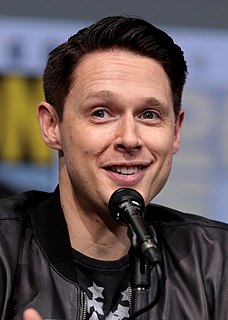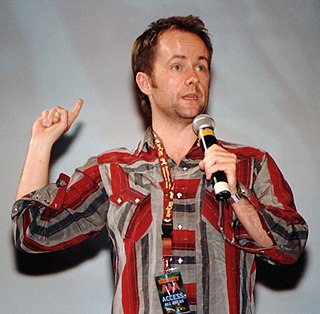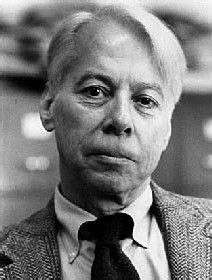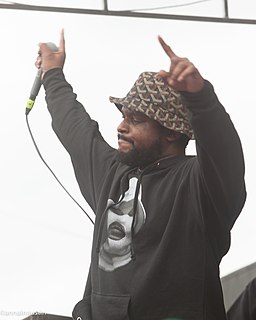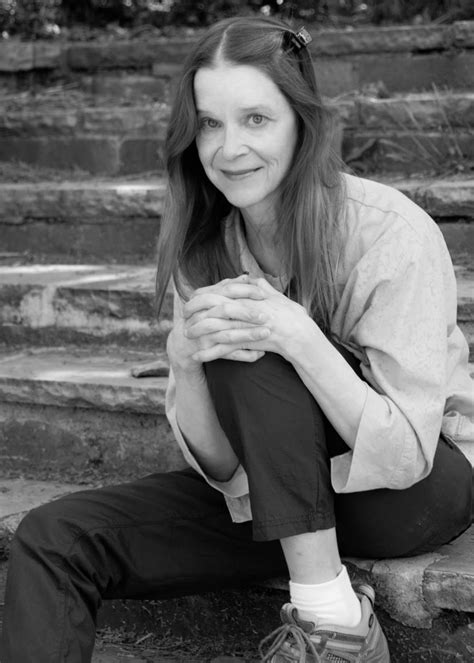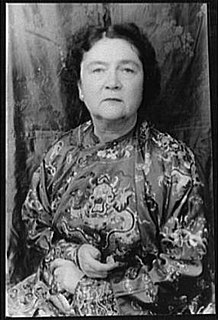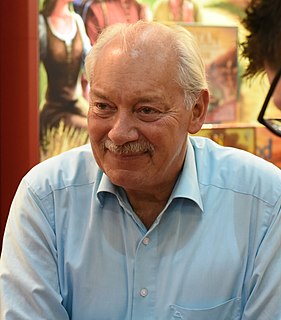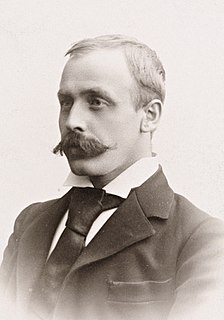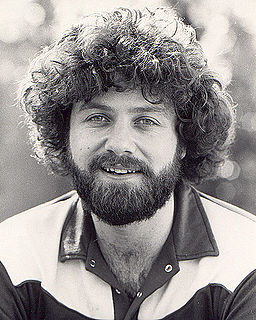Top 1200 Writes Quotes & Sayings - Page 20
Explore popular Writes quotes.
Last updated on November 16, 2024.
there was no crime in unconscious plagiarism; that I committed it everyday, that he committed it everyday, that every man alive on earth who writes or speaks commits it every day and not merely once or twice but every time he open his mouth… there is nothing of our own in it except some slight change born of our temperament, character, environment, teachings and associations
The ambition of 'Ten Thousand Saints,' Eleanor Henderson's debut novel about a group of unambitious lost souls, is beautiful. In nearly 400 pages, Henderson does not hold back once: she writes the hell out of every moment, every scene, every perspective, every fleeting impression, every impulse and desire and bit of emotional detritus.
Max [Landis] writes in quite a heightened way, specifically for Dirk. There's a rhythm and a specific speed to it, and it was very easy to learn because it was so well-written. It just rolled off the tongue. There aren't many auditions that I go for, where I feel like I could actually do the part. But with this one, even though I was not quite sure how to pin Dirk down, I thought I could do it.
I never really wanted to be a daily critic who goes out every night and writes 300 word reviews, I wanted to write essays. And that gave me the luxury to be able to go out and if it was lousy, I could just say, well the hell with that, I'll go to hear something else, or, I'll go tomorrow night; I as writing for a weekly.
It is not difficult to conceive, however, that for many reasons a man writes much better than he lives. For without entering into refined speculations, it may be shown much easier to design than to perform. A man proposes his schemes of life in a state of abstraction and disengagement, exempt from the enticements of hope, the solicitations of affection, the importunities of appetite, or the depressions of fear.
A man I know who writes and aspires to be a novelist does very little reading, and he's not that successful. But I think it's because he's like the kid who wants to be a ballplayer and never goes to the ballpark or tries to hit a ball. So I'd say reading is the most important thing that I do, besides the actual writing. I'm always asking as I read, "How did the writer do this? Why do I suddenly have tears in my eyes? Why am I crying?"
I have a real aversion to machines. I write with a pen. Then I read it to someone who writes it onto the computer. What are those computer letters made of anyway? Light? Too insubstantial. Paper, you can feel it. A pen. There's a connection. A pen goes exactly at your speed, whereas that machine jumps. And then, that machine is waiting for you, just humming "uh-huh, yes?
Whoever writes a bad review, I put their name on a list, and they're going to get taken care of one day down the road. Otherwise, I don't let it bother me. The truth is, these are review-proof movies. The audiences are going to see it. My audience, our audience, isn't reading Esquire magazine to see if my movie is good or not. They just want to laugh, to be entertained, and lose themselves.
The truth is that Trout, like Vonnegut and Ray Bradbury and many others, writes parables. These are set in frames which have become called, for no good reason, science fiction. A better generic term would be 'future fairy tales'. And even this is objectionable, since many science fiction stories take place in the present or the past, far and near.
Every man who speaks out loud and clear is tinting the "Zeitgeist." Every man who expresses what he honestly thinks is true is changing the Spirit of the Times. Thinkers help other people to think, for they formulate what others are thinking. No person writes or thinks alone--thought is in the air, but its expression is necessary to create a tangible Spirit of the Times.
The issue Fodor writes about is central to the psychology of perception, cognition, and action. It is the central issue for anyone who would seriously study the neurobiology of behavior: Is the mind organized horizontally or vertically or both, and what are the consequences to psychology of proceeding on one assumption or the other? This has been little analyzed and written about. Jerry Fodor has repaired that omission and had done it brilliantly.
Now if I believe in God's Son and remember that He became man, all creatures will appear a hundred times more beautiful to me than before. Then I will properly appreciate the sun, the moon, the stars, trees, apples, as I reflect that he is Lord over all things. ...God writes the Gospel, not in the Bible alone, but also on trees, and in the flowers and clouds and stars.
The midnight disease is a kind of emotional insomnia; at ever conscious moment its victim—even if he or she writes at dawn, or in the middle of the afternoon—feels like a person lying in a sweltering bedroom, with the window thrown open, looking up at a sky filled with stars and airplanes, listening to the narrative of a rattling blind, an ambulance, a fly trapped in a Coke bottle, while all around him the neighbours soundly sleep.
Poetry is creative expression; Prose is constructive expression... by creative I mean original. In Poetry the words are born or reborn in the act of thinking... There is no time interval between the words and the thought when a real poet writes, both of them happen together, and both the thought and the word are Poetry.
You must be life for me to the very end," so he writes. "That is the only way in which to sustain my idea of you. Because you have gotten, as you see, tied up with something so vital to me, I do not think I shall ever shake you off. Nor do I wish to. I want you to live more vitally every day, as I am dead. That is why, when I speak of you to others, I am just a bit ashamed. It's hard to talk of one's self so intimately
I'm not a person who writes really abstract things with oblique references. I look at abstraction like I look at condiments. Give me some Tabasco sauce, some ketchup, some mayonnaise. I love all of that. Put it on a trumpet. I've just got to have the ketchup and Tabasco sauce. That's my attitude about musical philosophy.
To write or even speak English is not a science but an art. There are no reliable words. Whoever writes English is involved in a struggle that never lets up even for a sentence. He is struggling against vagueness, against obscurity, against the lure of the decorative adjective, against the encroachment of Latin and Greek, and, above all, against the worn-out phrases and dead metaphors with which the language is cluttered up.
When someone writes something hateful and threatening I respond with something like, "I want to be so much like you; I want to wear your skin." By messing with them in that way you change what they're selling. They won't share it. And it halts the conversation. Or I'll change it to "Jenny, you're like a rose bush that grew a watermelon." They come back pissed off and write, "I didn't say that!"
She writes that one of the moments that she felt most useful was when her mother had a headache, and she would stroke her head and rub her forehead. And I think Eleanor Roosevelt's entire life was dedicated to two things: (one) making it better for all people, people in trouble and in need, like her family.
Because the writer must be a participant in the scene, while he's writing it — or at least taping it, or even sketching it. Or all three. Probably the closest analogy to the ideal would be a film director/producer who writes his own scripts, does his own camera work and somehow manages to film himself in action, as the protagonist or at least a main character.
Greg Rucka always writes lovely, believable female characters in books like 'Whiteout,' 'Queen and Country,' and 'Lazarus.' I am a fan of Kelly Sue DeConnick, who does a wonderful female lead in 'Captain Marvel.' And DC's 'Batwoman' is currently the only book at the Big Two with a lesbian solo lead character, and it's always outstanding.
I'm very concerned with questions of language. This is what I think of when I think of myself as a writer: I'm someone who writes sentences and paragraphs. I think of the sentence - not only what it shares but, in a sense, what it looks like. I like to match words not only in a way that convey a meaning, possibly an indirect meaning, but even at times words that have a kind of visual correspondence.
Mr. Beerbohm in his way is perfect ... He has brought personality into literature, not unconsciously and impurely, but so consciously and purely that we do not know whether there is any relation between Max the essayist and Mr. Beerbohm the man. We only know that the spirit of personality permeates every word that he writes ... He is without doubt the prince of his profession.
Only a few months into our marriage," writes the grandfather, "we started marking off areas in the apartment as 'Nothing Places,' in which one could be assured of complete privacy, we agreed that we never would look at the marked-off zones, that they would be nonexistent territories in the apartment in which one could temporarily cease to exist.
When a poet writes a poem, meaning arises - because the poet is not alone; he has created something. When a dancer dances, meaning arises. When a mother gives birth to a child, meaning arises. Left alone, cut off from everything else, isolated like an island, you are meaningless. Joined together you are meaningful. The bigger the whole, the bigger is the meaning.
A scrupulous writer in every sentence that he writes will ask himself. . . What am I trying to say? What words will express it?...And he probably asks himself. . . Could I put it more shortly? But you are not obliged to go to all this trouble. You can shirk it by simply throwing open your mind and letting the ready-made phrases come crowding in. They will construct your sentences for you
The art of not reading is a very important one. It consists in not taking an interest in whatever may be engaging the attention of the general public at any particular time. When some political or ecclesiastical pamphlet, or novel, or poem is making a great commotion, you should remember that he who writes for fools always finds a large public. A precondition for reading good books is not reading bad ones: for life is short.
Hannah Tinti writes with uncommon grace and stunning insight. Her quirky tribe of outcasts will break into your dreams and steal your spirit. Surrender to them! Let your heart be broken! Only then will you know the tender thrill of their wild companionship. The Good Thief is pure delight. When you wake from this dream, you will wake bedazzled
Hemingway, damn his soul, makes everything he writes terrifically exciting (and incidentally makes all us second-raters seem positively adolescent) by the seemingly simple expedient of the iceberg principle - three-fourths of the substance under the surface. He comes closer that way to retaining the magic of the original, unexpressed idea or emotion, which is always more stirring than any words. But just try and do it!
I'm not an advocate of true rhymes, I don't think. I think that everyone who writes musical theater needs to know how to do true rhymes, because that's the tradition of it, but I do think that in order for the art form to grow, it's important to not let tradition get in the way of innovation. There's all kinds of reasons not to use true rhyme in a lyric, like with off-color humor.
Proust writes, he remembers, physically. He depends on his body to give him the information that will bring him to the past. His book is called 'In Search of Lost Time,' and he does it through the senses. He does it through smell. He does it through feeling. He does it through texture. It is all physically driven, that language.
I dabbled a little bit in the whole music thing but I've always thought about Bernie Taupin, who is Elton John's lyricist; Elton John is the great melody and song writer but Bernie Taupin is the one who writes all the lyrics. I don't write lyrics, and I never wanted to be in the music business if I was just going to be a puppet in it.
When a sculptor creates a sculpture, a writer writes a novel, or a painter paints a motif on a canvas, he needs talent and expertise. But to be successful in his endeavor, he also needs to have the passionate feeling that he wants, at all costs, to create a work of art which, in his head, constantly demands to be accomplished. The same also applies to developing board games or card games.
Sarah [Silverman] writes her own jokes. She doesn't just go through her life and talk about everything. She sits down and crafts jokes. Sometimes her inspiration comes from areas of her life that are risqué. But she is an A-plus professional joke-writer in addition to being very attractive and a great performer.
Munch writes poetry with color. He has taught himself to see the full potential of color in art His use of color is above all lyrical. He feels color and he reveals his feelings through colors; he does not see them in isolation. He does not just see yellow, red and blue and violet; he sees sorrow and screaming and melancholy and decay.
A solitary American monk named Thomas Berry writes that in our relationship to nature, we have been autistic for centuries. Wrapped tightly in our own version of knowledge, we have been unreceptive to the wisdom of the natural world. To tune in again, to have the "spontaneous environmental rapport" that characterized our ancestors, will take doing something that is perfectly delightful: reimmersing ourselves in the natural world.
No one was more important to the game of baseball in the last half of the 20th century than Henry Aaron and no one writes about that supremely talented man, that tumultuous time and this treasure of a game better than Howard Bryant. Together, they are an extraordinary combination, and the book Bryant has written gets to the heart of the complicated and dignified, patient and consistent genuine hero that is Henry Aaron.
I genuinely was just such a fan of the books. When I heard that this was on the cards, I've got to do this; I've got to get involved with this. I'm such a Philip Pullman fan and actually his philosophies, morals and the way he looks at the world. He does what he does brilliantly as a writer. He writes children's stories with major adult themes and major ideas about making the right choices.
I've probably read maybe by now fifteen, twenty books on Matthew. I'd say the authors I like best are an English fellow named Michael Goulder, who taught at the University of Birmingham in England, and he writes about the Jewish background in Matthew's gospel, which is part of what I was just talking about, which is just really thrilling to me.
Louis Brandeis actually changes his mind about women's suffrage because he works with these brilliant women in the women's suffrage movement like Josephine Goldmark, his sister-in-law, where he writes a Brandeis brief which convinced the court to uphold maximum hour laws for women by collecting all these facts and empirical evidence.
Will you still want me if I'm poor, Kat?" "What kind of question is that?" "No. Seriously. You're the planner. Simon's the genius. The Bagshaws are the muscle. And Gabrielle is . . . Gabrielle. But what am I, Kat? I'm the guy who writes the checks." "No. You're the most naturally gifted inside man I have ever seen. And I was raised by Bobby Bishop." She made him look into her eyes. "I don't care about your money.
There's actually a wonderful quote from Stanley Fish, who is sometimes very polemical and with whom I don't always agree. He writes, "Freedom of speech is not an academic value. Accuracy of speech is an academic value; completeness of speech is an academic value; relevance of speech is an academic value. Each of these is directly related to the goal of academic inquiry: getting a matter of fact right."
I just can't fathom tweeting, and I'd rather spend my time writing a book than a blog, but I rather grudgingly agreed to a Facebook page. I had a brief, intense romance with Facebook. It's weirdly addictive, but anything that time-sucking is a danger for a writer who writes as slowly as I do. Now I post only occasionally and nothing very confessional. I think I'm carbon dating myself as I speak.
How happy is the lot of the mathematician! He is judged solely by his peers, and the standard is so high that no colleague or rival can ever win a reputation he does not deserve. No cashier writes a letter to the press complaining about the incomprehensibility of Modern Mathematics and comparing it unfavorably with the good old days when mathematicians were content to paper irregularly shaped rooms and fill bathtubs without closing the waste pipe.
The Treatise of the Three Impostors is a book that enjoyed centuries of notorious nonexistence until (as Voltaire would say) it became necessary to invent it. Georges Minois writes with empathy, erudition, and a novelist's sense of buildup and timing, weaving in the parallel story of Europe's courageous freethinkers. In the face of today's social and even legal pressures against criticizing religion, it is good to see an honorable French tradition asserting itself.
I was talking to Cecil [Castellucci], who writes Shade, and I was saying to her, and she was saying the same thing, that I'm not even the same person who wrote the first issue of Doom Patrol, and that was six months ago. I'm a totally different person now, already. It's weird to look back at stuff, but it's an honor that there's a legacy of people who still keep it in their heads. It's really cool!
Suppose that a person writes what she must. That is only the first step of becoming a writer. The work must survive the moment of creation. It must get out to an audience. She or he must dare to show the work. She must risk ridicule, misunderstanding, scandal, condemnation, & what's often worse, none of the above: silence. No attention at all.
Here's the point - and Jonah Goldberg reminds us of this. He wrote a blog post that was titled "The MacGuffinization of American Politics." Do you know what a MacGuffin is? "'In a movie or book, 'The MacGuffin' is the thing the hero wants,' Ace writes." So in the Maltese Falcon, for example, the hero wants the Maltese Falcon, but there's always somebody trying to stop the hero from getting what he wants.
All excuses are nothing more than misalignments with God. Just imagine the great creative Source needing an excuse. It doesn't have any concept of, "I'm too busy. I'm too old. I'm too afraid. Things are going to take too long." Source doesn't work like that. The Tao does nothing, Lao-tzu writes, but it leaves nothing undone.
There are certainly people for whom politics is not a category that helps you understand human existence. In fact, it's kind of a detour into superficiality, and although I disagree with those people, I don't think it's the case that everyone who writes has to write politically or has to write in opposition to the really horrendous things that are going on on a political level in the world today. There are some writers who simply aren't any good at that and really should stay away from it.


